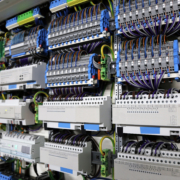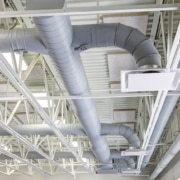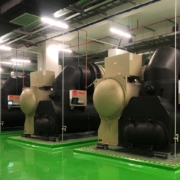Case Study 3 of 8: Qualifying as a designer of energy-efficient properties
Case Study 3 of 8: Qualifying as a designer of energy-efficient properties
Nearly two decades after IRC §179D was published as part of the Energy Policy Act of 2005, this deduction remains a top priority in building projects. With the enhancements that have occurred through the passage of the Inflation Reduction Act of 2022, there’s even more interest in establishing eligibility.
While energy efficient commercial building property (EECBP) tax incentives typically remain with a project or building owner, this is not the case with government-owned projects. IRC §179D includes a provision that qualifying designers of government-owned buildings can request a transfer of these federal tax incentives. This allows designers to receive a tax deduction that they wouldn’t normally receive. As these tax incentives can be significant, multiple parties engaged in a project may request this transfer, whether qualification has occurred.
Though IRC §179D provides the framework for establishing that the necessary energy and power cost savings occur to claim the deduction, the IRS has not yet published actual IRC §179D regulations, making the question of whether qualification has occurred a bit more complex. Just as importantly, the IRS is aware of erroneous §179D claims, making this area an easy target for auditors.
The IRS has released several factual scenarios that help clarify this issue. In our continued series of blog posts, Walker Reid is looking at each IRS Memorandum AM 2018-005 scenario and providing further explanation.
In the third scenario, the IRS focuses on whether a construction manager, acting in a specific advisory and project management role, does qualify as the designer of an energy-efficient commercial building project.
Under the presented scenario, a government building owner has contracted with various trades for the design and installation of energy efficient commercial building property (EECBP) systems, but also has engaged the services of an architect and a construction manager to oversee the construction project itself.
Per the contract terms, the construction manager was not contractually responsible for the EECBP design. In this role, the construction management firm did not maintain direct contractual relationships with the various trades that provided the design and installation of the EECBP for this project. The role of the construction manager was limited to reviewing plans, providing progress reports, determining if the work complied with specifications, and ultimately certifying the work was completed for the owner.
Once the project was completed, the construction manager requested the §179D deduction allocation, which the government project owner agreed to. But was this a justifiable request?
To qualify for the §179D deduction allocation, an entity must be engaged in design services for the project. The IRS has made this qualification quite clear. But management services alone do not equal an automatic §179D deduction qualification, especially if the services are limited to a specific scope. The key qualification is whether those services included some responsibility for design. In this scenario, the construction manager entered a contract for advisory and management services.
Here, we must look at what tasks were known to be excluded. The construction manager did not create technical specifications, did not provide design services, nor did it have a direct contractual relationship with those contractors who provided these services. Instead, the construction manager acted in a purely project management role while other trades and entities performed the qualifying tasks.
In this instance, the construction manager was not responsible for the tasks that qualify an entity to request the transfer of the §179D deduction, and the IRS ruled that this particular claim should be disallowed.
David Diaz is a partner at Walker Reid Strategies, a licensed professional engineering firm specializing in performing §179D studies and §45L certifications. Mr. Diaz is an expert in energy efficiency and specialty tax services who shares his insights at www.walkerreid.com and online through webinars. For more information, contact him at ddiaz@walkerreid.com.










